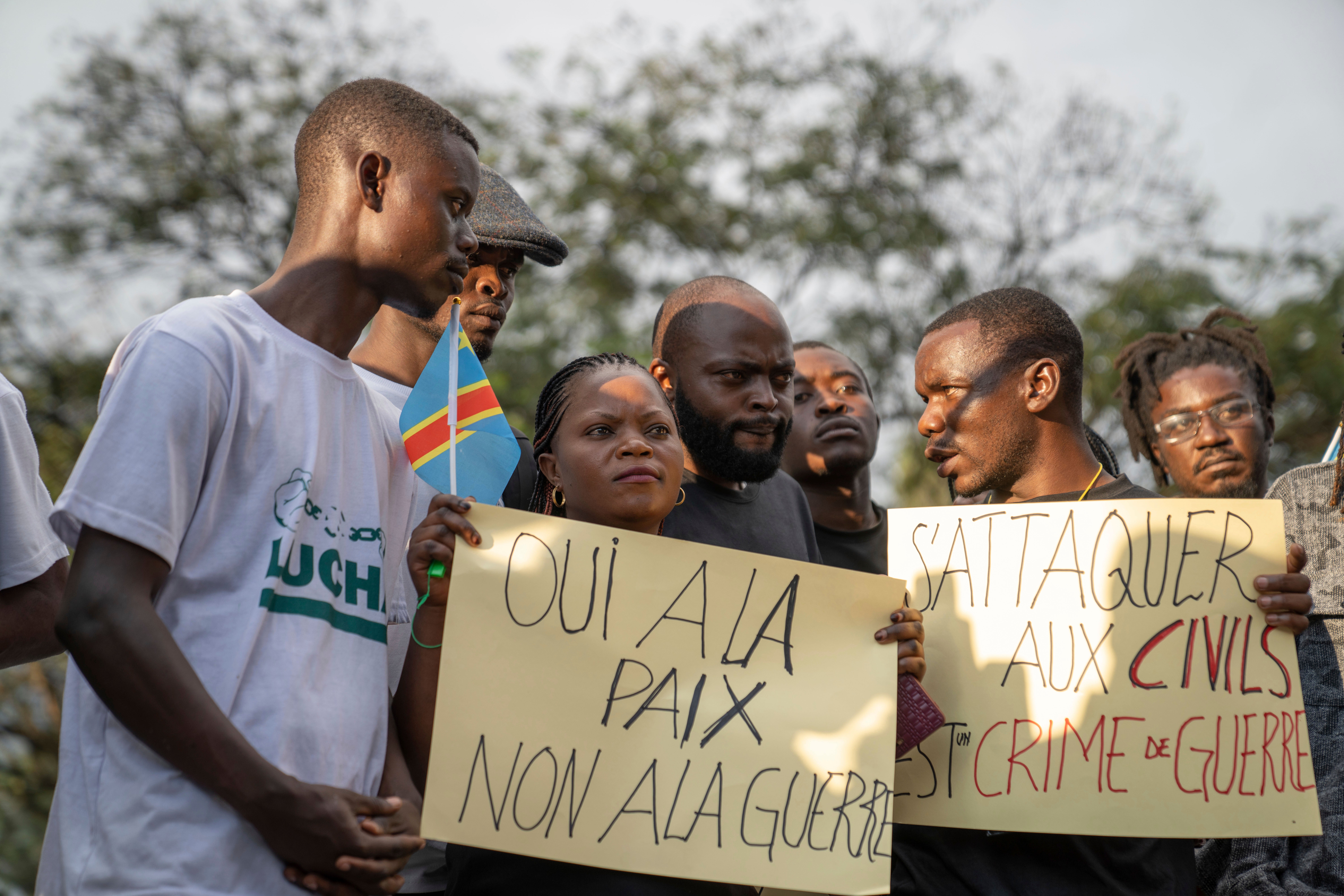Families of the victims of attacks on displaced people in Congo mourn their dead
Families of the victims of last week's bombings at two camps of displaced people in eastern Congo, which killed at least sixteen people, have mourned their loved ones at a ceremony in the city of Goma

Your support helps us to tell the story
From reproductive rights to climate change to Big Tech, The Independent is on the ground when the story is developing. Whether it's investigating the financials of Elon Musk's pro-Trump PAC or producing our latest documentary, 'The A Word', which shines a light on the American women fighting for reproductive rights, we know how important it is to parse out the facts from the messaging.
At such a critical moment in US history, we need reporters on the ground. Your donation allows us to keep sending journalists to speak to both sides of the story.
The Independent is trusted by Americans across the entire political spectrum. And unlike many other quality news outlets, we choose not to lock Americans out of our reporting and analysis with paywalls. We believe quality journalism should be available to everyone, paid for by those who can afford it.
Your support makes all the difference.Families of the victims of last week's bomb attacks on two camps of displaced people in eastern Congo gathered to mourn their loved ones at a ceremony on Monday evening. During the ceremony in the city of Goma in the North Kivu Province, mourners sang and lit candles in tribute to the deceased.
The bombings at the Mugunga and Lac Vert displacement camps killed at least 18 people and injured another 32, according to the United Nations. It wasn’t clear which type of explosives were used in the attacks. Most of the victims were women and children.
Alimeti Kigiho, who survived the attack, had sought shelter from eastern Congo’s long war at the Mugunga displacement camp in February, only to be shaken by explosions while going to fetch water. He ran back to his tent, where he found the bodies of his wife and two young children, aged 6 and 2, in pieces.
“War has taken everything from me,” Kigiho, 45, told the Associated Press.
The Congolese army and a rebel group known as M23 have blamed each other for the bombings. The March 23 Movement, or M23, is a rebel military group mainly made up of ethnic Tutsis that broke away from the Congolese army 12 years ago.
The decades long conflict in eastern Congo has produced one of the world’s worst humanitarian crises, with over 100 armed groups fighting in the region, most for land and control of mines with valuable minerals. Some are fighting to try to protect their communities. Many groups are accused of carrying out mass killings, rapes and other human rights violations.
The violence has displaced about 7 million people, including thousands living in temporary camps like the ones attacked last week. Many others are beyond the reach of aid.
Justine Joza Bushashire, lost her 19-year-old son, Daudi, in the bombings. Before the attacks, he used to sell phone charging units in the camp to help support his family.
”He wanted to join the army, I opposed it because I relied heavily on him, but today he is gone,” said Justine, 37, in tears.
The attacks have driven some residents in the camp to consider returning to their homes, despite the dangers that caused them to flee in the first place.
Congolese President Felix Tshisekedi accuses neighboring Rwanda of destabilizing Congo by backing the M23 rebels. U.N. experts, along with the U.S. State Department, have also accused Rwanda of backing the rebels. Rwanda denies the claims.
Some of the mourners at the ceremony on Monday criticized President Tshisekedi along with the international community for failing to end the long-running conflict.
“If he is unable to end this war, he should resign,” Bienfait Bonane, a youth from Goma, told the Associated Press.